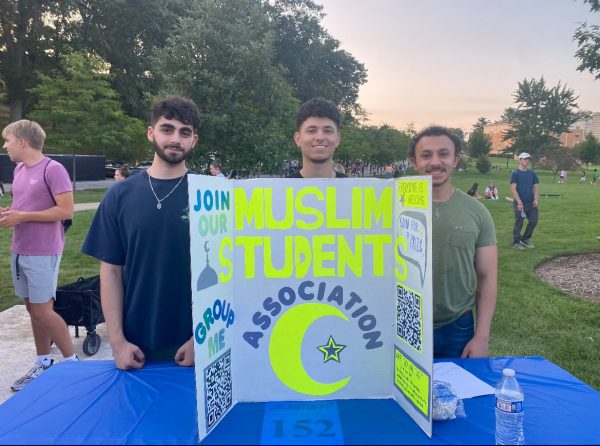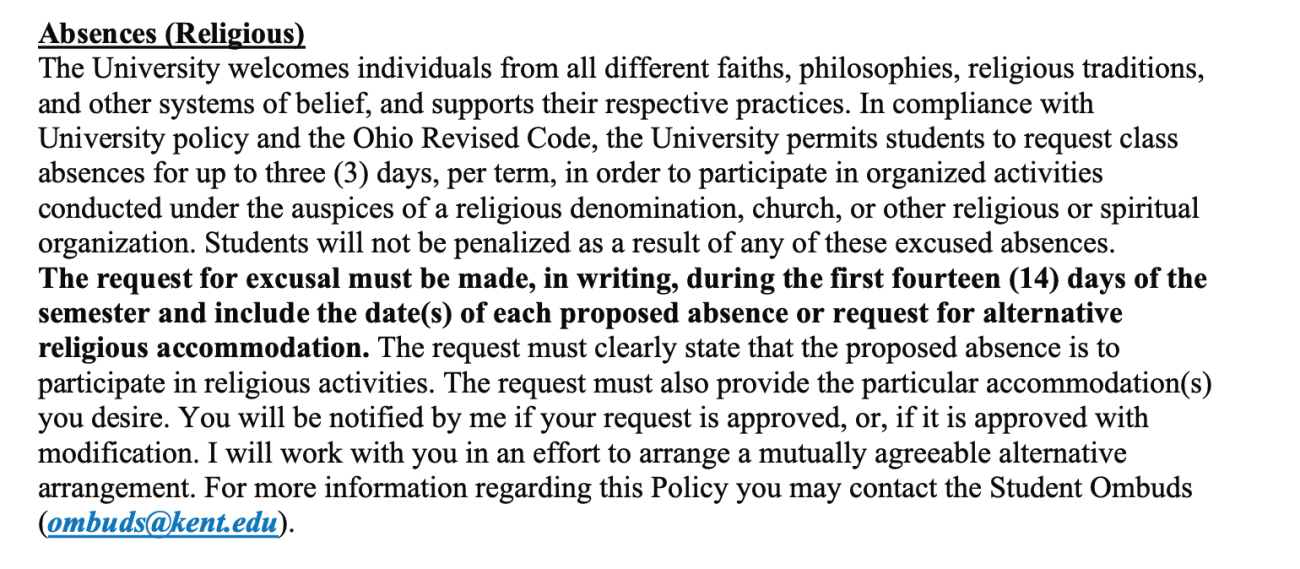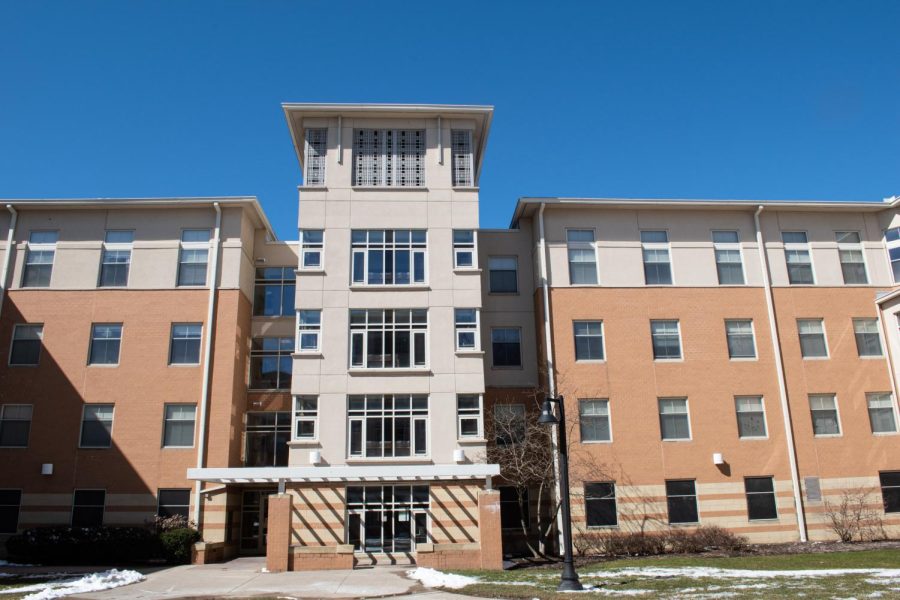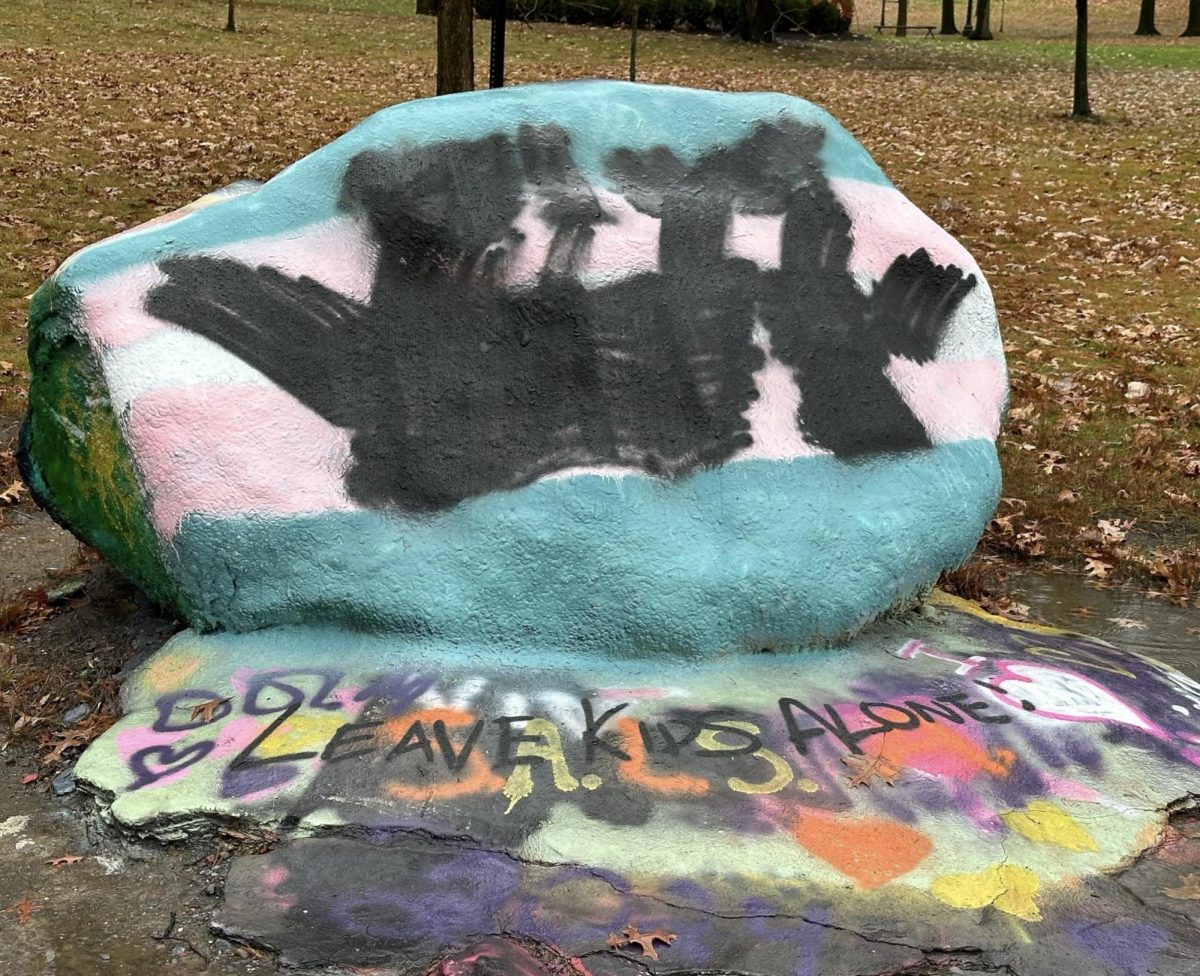Students are now allowed to submit a maximum of three days of religious exemption from classes after Section 3345.026 of the Ohio Revised Code took effect April 3.
The exemption can either be requested as days off or as specific accommodations. The request will either be accepted, rejected or approved with modification.
Students must apply for the exemption within 14 days of the semester beginning, university syllabi stated.
Amina Dhaher, a junior aerospace engineering major and marketing director of the Muslim Students’ Association, said she would appreciate more flexibility on the 14-day rule due to the lunar cycle that many Islamic dates follow. For those celebrating the respective holidays, they will not know when those holidays will take place most likely until the day before, she said.
“Because we don’t know our exact days, that 14-day time period is very restrictive,” Dhaher said. “You can still say, ‘Oh, I have a conference so I will be missing this one class,’ and you don’t have to tell them right at the beginning of the semester. We still have that freedom where we can tell them a week before, so I feel like I would want to have that same luxury.”
For Ahmed Barghout, a senior chemistry major and treasurer for the Muslim Students’ Association, the experience of reviewing the new syllabi with his professors did not feel as restrictive.

(Courtesy of the Muslim Students’ Association)
“I feel like one of my professors was very lenient,” Barghout said. “She was like, ‘You don’t need to do that. Just tell me in advance,’ so I think it’s really based off of the professor’s preference.”
When talking about the three-day maximum, Barghout’s thoughts turned to Ramadan, the Muslim holy month, and what that may mean for their days off.
“Some of our holidays are more than three days for just one event, so we can’t even celebrate the whole thing,” he said. “I don’t think it’s enough, but I think it’s a step in the right direction.”
Rebecca Catto, an associate professor who has a background in research on the sociology of religion, was interested in the language used in the new legislation.
“There’s common language about sincerely held religious or spiritual beliefs, and that’s very hard to check, whether someone else’s views or beliefs are sincerely held, but then there’s meant to be no questions asked in the policy,” Catto said.
However, Catto believes that this is positive progress within the university for acknowledging the various religions and spiritual beliefs on campus.
“There’s been this historic Christian dominance, and even if you’ve had this formal separation of church and state, you still see that prevalent throughout the society,” Catto said. “If your holidays do not fit with that, your religious holidays, then that is hard.”
As the university previously had no official accommodations for religious holidays, Catto recognized that the separation of church and state sometimes can work against freedom of religion. For example, she cited legislation in France against Muslim headscarves in public institutions.
“You can say it’s meant to be treating everyone equally or the same, but then it’s having a disproportionate harm on particular individuals, on Muslim women,” Catto said. “Having it absent from public institutions and just ignoring it isn’t necessarily fair and inclusive.”
Catto is looking forward to seeing how the new religious exemptions will work within the university as the semester progresses, particularly how students will be accommodated and what the outcome of requests may be, she said.
“What I imagine will happen is it gets rarely used and doesn’t get taken advantage of by students, and only would be used by those who really, really need it and will take it seriously,” Catto said. “It will be interesting to see. I’m interested in the practical applications of it and how it works in implementation.”
Kayla Gleason is a reporter. Contact her at [email protected].





